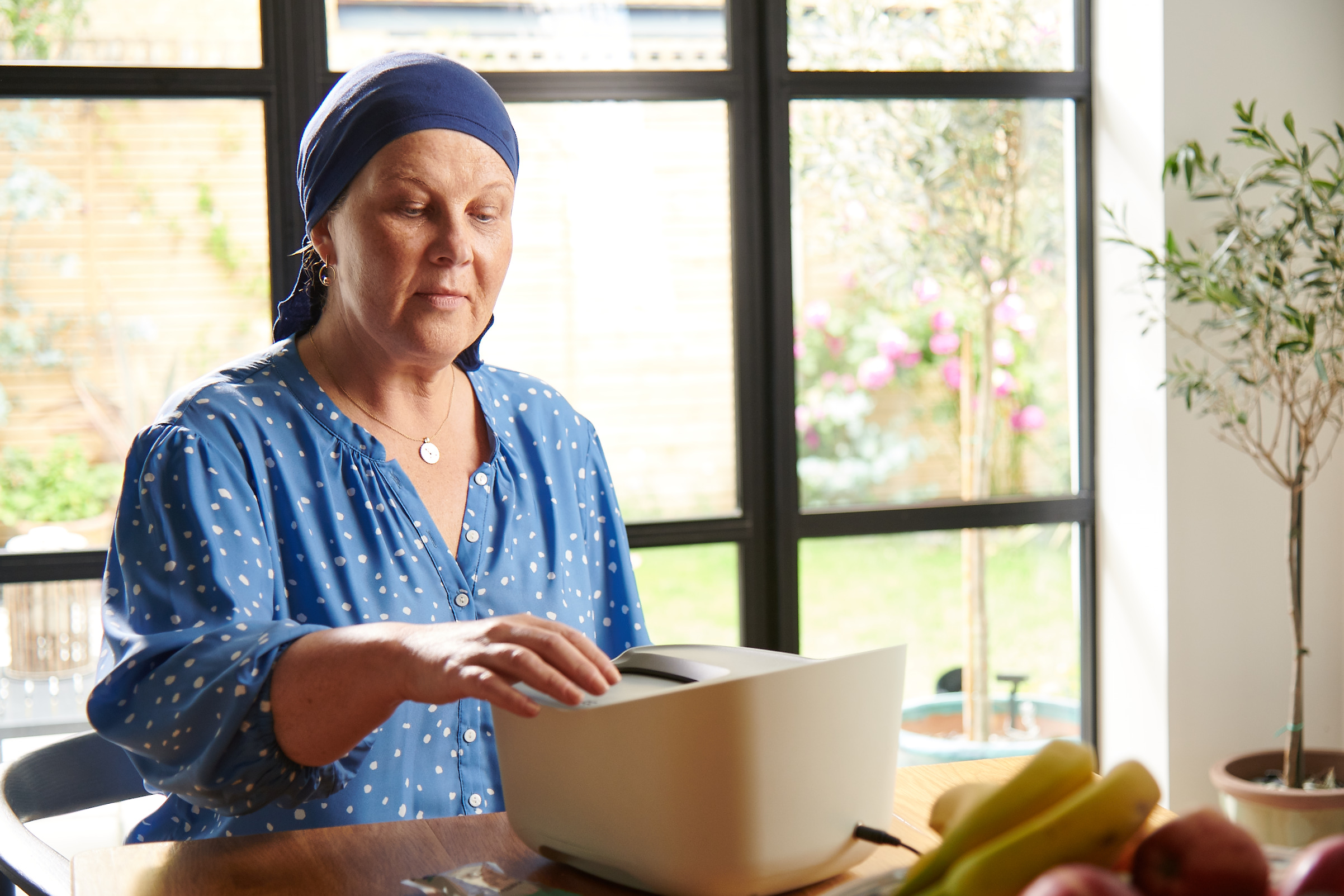How Biomedical Catalyst funding accelerated Entia's delivery of a world first solution for cancer care
Last updated: 20/11/2025
Cancer patients can now take their own blood tests via a simple-to-use device, in the comfort of their own home. Entia delivers a remote monitoring service designed to reduce the need for hospital visits, spot treatment complications earlier, and ultimately improve a person’s quality of life and outcomes.
Entia’s CEO and founder Dr Toby Basey-Fisher developed the technology when he witnessed first-hand how gruelling it was for family members with debilitating side-effects from cancer treatment having to visit clinics for frequent blood tests. He also saw how challenging it was for clinicians to proactively identify patients in the community that were at risk of serious complications and needed their attention most.

His response was Liberty, a world-first service that challenges this reactive system. Toby says, “Rather than waiting for things to go wrong, we can now monitor a patient’s health in a way that allows healthcare professionals to quickly respond to unexpected changes. This helps patients receive care sooner, avoid unplanned hospitalisations and improve their overall care journey.”
It was in 2019, in the early years of Entia’s development that funding from Innovate UK’s Biomedical Catalyst helped Entia prioritise its vital work in oncology, supporting the conduct of feasibility studies, with resounding success.
This funding was incredible and a huge enabler for us. As well as de-risking the concept with investors, it unlocked valuable data through our work with key partners like The Christie NHS Foundation Trust and The Royal Marsden NHS Foundation Trust. It gave us deep insights into the problems we were actually trying to solve.
– Dr Toby Basey-Fisher, Entia’s CEO and founder
So how does it work? Liberty allows people to take blood tests from home. This data is sent to clinicians through a secure cloud network and insights are visualised through the Liberty dashboard for healthcare professionals. Built-in analytics flag any patient that requires more urgent or more specialist attention and can alert healthcare professionals to any untoward side-effects, so they can adjust the care accordingly. It means patients don’t have to wait for a routine appointment or for something to become an emergency to be able to get the care they need. And fewer hospital appointments also make more effective use of NHS resources and budget.
Entia’s work has attracted the attention of investors and global pharma. In 2022, the team secured £16 million investment in a funding round led by BGF and Parkwalk. It has also entered into an agreement with Pfizer who are looking for more innovative ways to streamline treatment pathways and improve patient outcomes with Liberty. The two businesses are now working together to secure regulatory approval and commercialise the service.
The relationship with Innovate UK extended well beyond the first grant. Over the last four years, Entia has received an additional £1.1 million in funding and has benefited from added value in the form of connections and support around R&D and commercialisation. Toby reflects: “Innovate UK was there from conception to actual delivery. It’s safe to say, none of this would have happened without Innovate UK backing us.”

